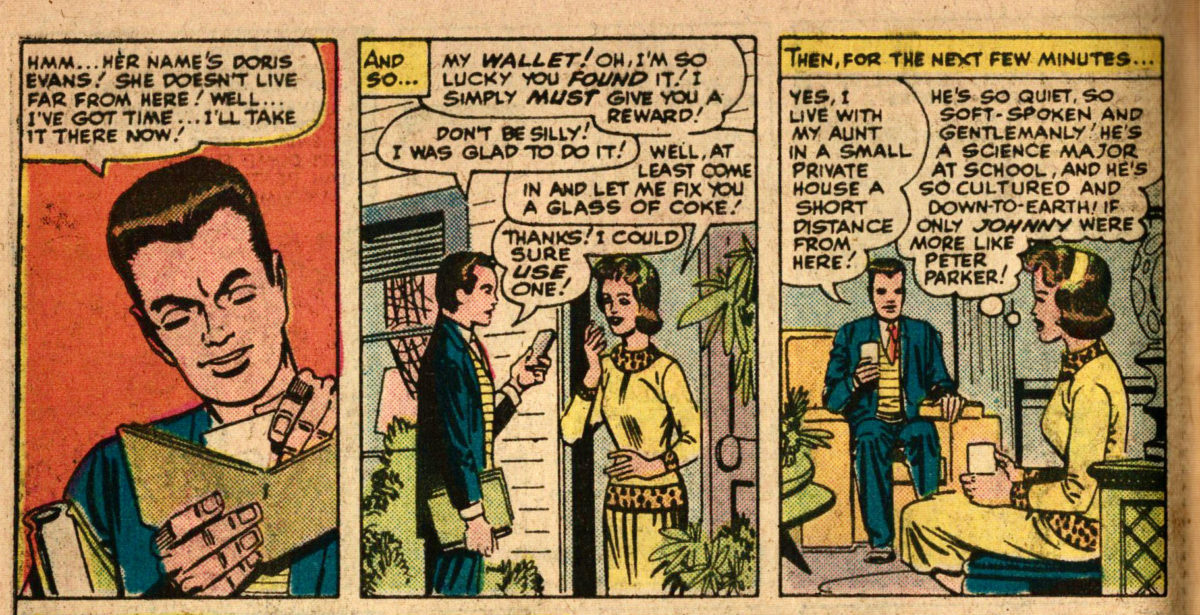Featuring: Iron Man
Release: February 11, 1964
Cover: May 1964
12 cents
Story plot by: Stan Lee
Script by: N. Korok
Art by: Don Heck
13 pages

Iron Man takes a big step forward. Since his debut, he’s been the lead feature of Tales to Suspense, featured on the cover with his name somewhere prominently, and his visage in the little box up top. This issue, he gets a logo. Large font in a standard position atop the page reads, “The Power of Iron Man”. The comic is still “Tales of Suspense”, as noted at the top; yet, the comic’s title is the subordinate font. In big bold letters, we see clearly this is Iron Man’s comic. Marvel will do the same with Thor next month. For whatever reason, they seem less inclined to advertise Human Torch or Giant-Man so boldly.
While less impressive, it should be noted that The Watcher gets acknowledged on the cover in a text box. No other covers have or will mention his backup features. That coincides with a change in the Watcher tales. He will no longer be narrating other tales but starring in his own adventures.
Black Widow returns, now with black hair (though this time it looks red on the cover). Last issue, her only role was distraction by seduction. Here, she steals a powerful new Stark weapon, but we still don’t see her demonstrating many talents of her own.

Her plan largely hinges on Stark’s stupidity (which worked well for her last time). He shows her his new top secret super weapon, perhaps because he is smitten with her. She then steals the weapon. We learn Stark was not smitten, but pretending to trust her to learn her plans. There was no need for that. The events of last issue provide plenty of evidence she was a Soviet spy and an accomplice in the murder of Professor Vanko. There was no reason to learn her new plan. Just have her arrested.































